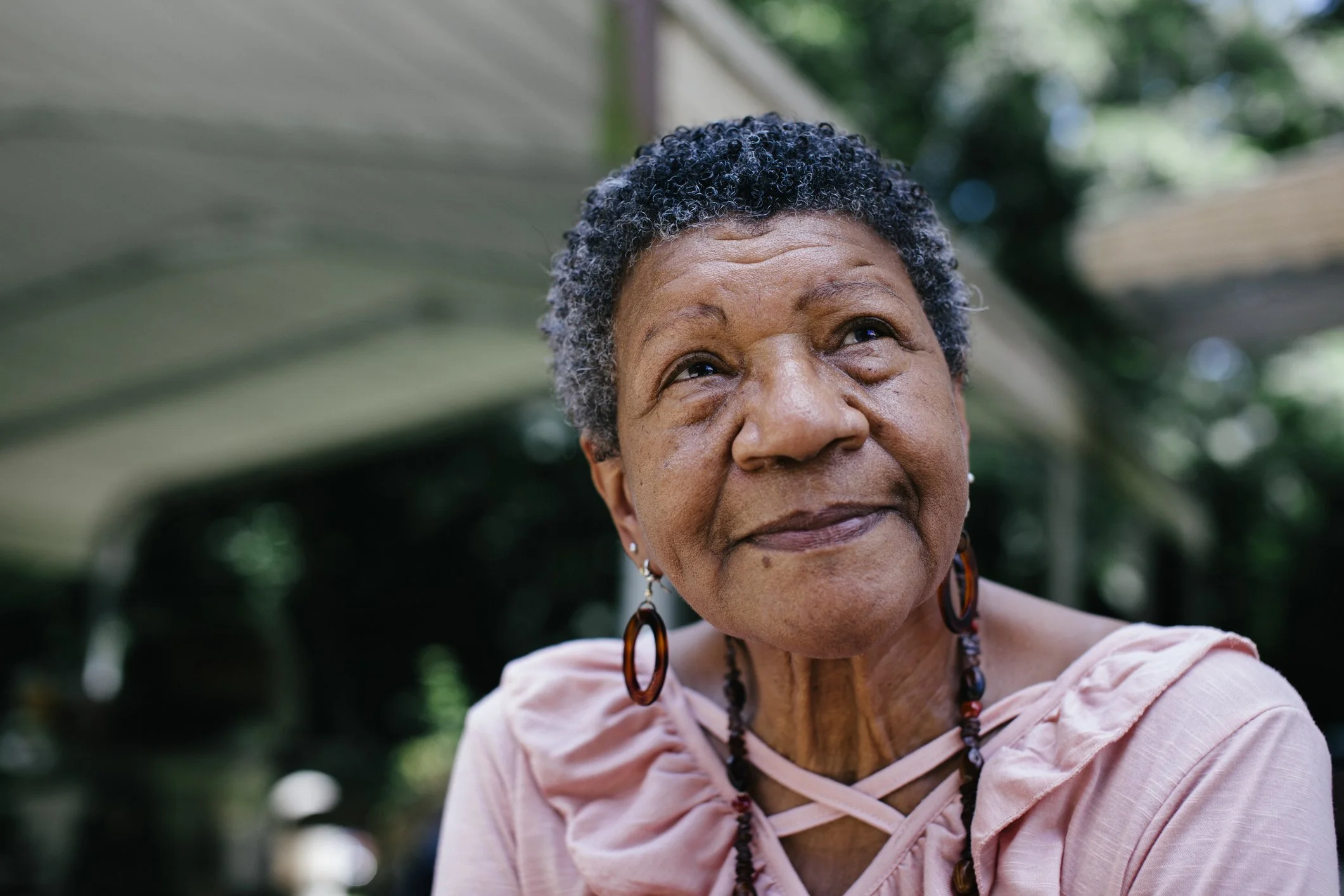Abandonment issues often stem from past experiences of rejection, neglect, or abandonment, leading to deep-seated fears of being left or rejected. People with abandonment issues often struggle to create a healthy relationship.
Making friends is tough. It takes time, trust, and a little bit of luck.
Every sappy romantic can recall the moment in the movie, Love Story, when after an argument, Oliver told Jenny he was sorry and through her tears she quivered and replied, “Don’t … love means never having to say you’re sorry.” Anyone who has ever been in a loving relationship understands the point of that statement – unconditional love doesn’t require one to apologize. But, is it really a good practice to forego an admission of wrongdoing or hurtful behavior?
Even in the darkest moments of your life, there is strength within you (that you don’t even know exists) and, if you don’t give up and succumb to the negative feelings, you will realize that there is hope and that better times lie ahead.
As you embark on this task and create your direction for the year, I ask, is your priority a WHO or a WHAT?
It seems like only yesterday we were saying hello to 2025 and making resolutions about all of the wonderful things we wanted to experience in the new year. And now, here we are reflecting back on how that year was lived.
This time of year is a season that provides for us the opportunity to stop our busy lives for a moment and give thanks for our many gifts and blessings.
The holiday season is upon us. For many it can be the most wonderful time of the year, but for others, it can be the loneliest. If you have lost a loved one or suffered a breakup with a spouse/significant other or friend, the holiday season is a constant reminder of the loss. Grief at any time of the year is painful, but it feels especially traumatic during the holidays.
The anxious/avoidant struggle is surprisingly common. Research suggests that a significant number of couples experience this push-and-pull dynamic where repeated cycles of closeness and withdrawal can create confusion emotional exhaustion, and self-doubt, making it feel far more challenging than it needs to be.
In today’s hyper-connected world, it’s becoming increasingly common for people to spend more time on social media than engaging with their significant other. While this behavior may seem harmless at first glance — just a few minutes scrolling through updates or watching short videos — it can slowly erode the quality of connection in a relationship. The dynamics behind this shift are complex. Social media offers instant gratification, distraction from stress, and the illusion of social interaction. Unlike real-life relationships, which require emotional effort, patience, and vulnerability, social media provides a curated escape where a person can control what they see and how they are seen. This allure can be especially tempting when real-life relationships feel difficult, unfulfilling, or mundane.
When we consistently focus on what’s wrong, on fear, or on how we’ve been wronged, we begin to attract more of the same. Not because life is cruel, but because our mindset filters how we interpret and interact with the world. A negative thought pattern causes us to miss opportunities, expect failure, and radiate energy that repels rather than attracts.
Feeling unattractive is an experience that can sneak up on anyone—regardless of age, gender, or physical appearance. Whether it’s triggered by a glance in the mirror, a social media scroll, or an offhand comment from someone else, these moments of self-doubt can leave deep emotional imprints. Understanding why we sometimes feel this way, how it shapes our behavior, and what we can do to shift our perspective is the first step toward reclaiming a healthier, more compassionate self-image.
I never saw it coming. One day, I was a wife with a future I thought was secure, and the next, I was alone—utterly, terrifyingly alone. My husband left, and with him went the life we had built together. I was left staring at the pieces, not knowing how I’d pay the bills, how to start over, or even who I was without him. The fear was overwhelming. I had wrapped so much of my identity around being a partner, a caregiver, someone who anchored a family. And suddenly, all I could see were the holes—emotionally, financially, spiritually. The weight of starting over felt too heavy to carry.
Few things are as confusing or painful as realizing that the person you care about doesn’t want the same kind of relationship you do. You may love them deeply, enjoy their company, and see a future together—but if you’re not aligned on the type of relationship you both want, it creates a fundamental tension that’s hard to ignore.
Expectations are a natural part of being human. We develop them from childhood, shaped by family dynamics, cultural narratives, personal experiences, and even media portrayals of how life and relationships “should” unfold. We expect love to be returned in the way we give it. We expect support from those we’ve supported. We expect fairness, reciprocity, and understanding, especially from those closest to us. At their core, expectations are often rooted in a desire for safety, connection, and predictability, but when left unchecked, they can become silent saboteurs of our peace and our relationships.
Relationships have the power to bring out the best in us—and sometimes, the most vulnerable parts we didn’t know were still raw. If you’ve ever reacted in a way that surprised even yourself—snapping over a comment, withdrawing suddenly, or becoming overly emotional during a disagreement—you’ve likely encountered a trigger. These emotional landmines can cause us to act irrationally, often harming the very relationships we want to protect.
Re-entering the dating world later in life can be both exciting and overwhelming. For many, the experience brings a mix of emotions — hope, anxiety, self-doubt, and even frustration. The dating landscape has changed drastically (and that’s an understatement), and the confidence once felt in youth may now be replaced with feelings of inadequacy or fear of rejection. However, despite these challenges, later in life dating can also be an opportunity for growth, self-discovery, and yes, even love.
A trauma bond is a deep emotional attachment that forms between a person and their abuser, typically as a result of repeated cycles of abuse and intermittent reinforcement. It is a psychological response to intense, often manipulative emotional experiences that create confusion, loyalty, and dependency — even in the face of harm. Unlike healthy attachment, trauma bonding is rooted in fear, shame, and control rather than trust, safety, and mutual respect. This type of bond can be especially difficult to recognize and break, as the relationship often swings between periods of intense connection and episodes of abuse or neglect.
It’s one of the most painful feelings in the world: wondering if the people you care about care about you in return. Maybe they don’t say “I love you” often. Maybe they don’t check in as much as you’d like. Maybe they feel distant, distracted, or emotionally unavailable. Whatever the reason, when someone doesn’t show they care in the ways you need, it can leave you feeling confused, hurt, and alone. But here’s the truth: not everyone knows how to show love — and their silence doesn’t always mean they don’t care.
Being made an option when you’ve given someone your heart — whether in friendship, family, or love — cuts deeply. It evokes feelings of confusion, rejection, and even self-doubt. You start questioning your worth, wondering if you expected too much, or worse, if you’re just too much.
Deciding whether to stay in a romantic relationship can be one of the most difficult and emotionally charged choices you’ll ever make. It’s rarely black and white, but there are some essential truths to consider that can help bring clarity.
There is an old adage: breaking up is hard to do. Most of us at one time or another have suffered the pain of a broken heart. While we know that hearts don’t literally break, it can be hard to believe that’s true when a relationship has ended. It feels like the place that was once filled with love has been shattered to pieces.
In today’s digital world, where the lines between innocent engagement and emotional betrayal are blurred, this situation raises an important discussion: When does social media behavior cross the line, and should it be considered a form of cheating?
In recent years, many of us have experienced challenges like we never have seen before. Watching events unfold it is easy to think: I don’t understand what is happening; it seems like our world is upside down.
Do you often think about doing something different or implementing a new idea only to allow fear to stop you dead in your tracks without giving the opportunity a try?
I’m often amazed at people who feel they are more important than others. Those who believe that their wealth, status, or whatever circumstance they create in their mind, entitles them to special treatment or reverence that others do not receive.
I recently went through an experience that was painful for me on a personal level. Something I was certain would occur, didn’t happen. I did everything humanly possible to make my wish a reality, but in the end, things didn’t work out as I had planned.
The truth of the matter is that while there are many people in wonderful relationships, there are more people today living life as singles than ever before.
Forming an opinion based solely on someone else’s view can limit your ability to think critically and may prevent you from fully understanding the subject. When you adopt someone else’s perspective without investigating for yourself, you’re more likely to overlook important nuances, miss other viewpoints, and potentially accept biases or misinformation without question.
When someone talks about you—especially negatively—it can affect your emotions and self-esteem. This hurt stems from several psychological and emotional factors.




























